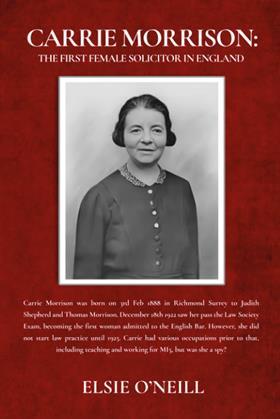'Call to arms' to criminologists
Armed Robbers: Identity and Cultural Mythscapes in the Lucky Country
Emmeline Taylor
£80, Oxford University Press
★★★★✩
In an academic text that reads like a novel (offered as a compliment), the whys and wherefores behind armed robberies in Australia are explored. Opening with the author’s first use of a gun, fortunately for clay pigeon shooting, the research explores what brings people to be armed robbers and the practicalities of trying to conduct research on a group that take pride in bucking cultural norms. It has much to say about both.
The methodological lens of the project is the concept of affective transgression, a term for the dimension of choosing to live outside common standards. Taylor considers doing research in prison (how one goes about it, its risks and drawbacks); the national mythos of Australia (steeped in campfire stories of outlaw Ned Kelly); the surprising role of planning and process in committing armed robbery (very little); and even the role of music. Yet this wide-ranging study never feels thinly drawn. Rather, multiple viewpoints are taken, and data used to try to answer the questions of ‘how?’ and ‘why?’.
The book is also a ‘call to arms’ to the field of criminology to embrace lived experiences as a starting point for exploring pertinent ideas, following what Taylor and others consider to be a withdrawal to the overly theoretical. How, Taylor argues, ‘can we possibly begin to understand the actions of individuals who appeared to relish frightening others… in the absence of empirical research?’.
If this sounds scholastic, it is anything but dry. In the third chapter, Taylor looks at negotiating access to prisoners, describing the various responses received from hardened criminals refusing to engage; one explains that the knowledge they are being asked to divulge has been handed down from generation to generation. To reveal it would go against the received wisdom of their chosen ‘career’.
The conclusions Taylor reaches are those readers may intuitively suspect: offenders have been exposed to violence for much of their lives, and drugs and abuse play a part in shaping behaviour. Yet the observational approach adds real-world nuance, and not all outcomes are entirely to be expected. The dashing armed robber known from Hollywood, detail-obsessed and prepared, turns out to be a mirage. In most cases, at least in this sample, those involved grabbed the nearest threatening item and headed to the local bank, with little thought for consequence.
Tom Proverbs-Garbett is a consultant
Carrie Morrison: The First Female Solicitor in England
Elsie O’Neill
£7.99, independently published
The lives of the first women who broke into the legal profession in England and Wales are endlessly fascinating. Most were born in Victorian times and came of age in the Edwardian period, an era of optimism, social change and opportunity, at least for the middle and upper-middle classes from which these pioneers invariably sprung.

The life of Carrie Morrison, who in 1922 became the first woman to be admitted as a solicitor in England and Wales, provides an example of how smart and ambitious these early female legal professionals had to be to achieve their goals. Leaving Girton College, Cambridge, with a first-class honours degree in medieval and modern Languages, Morrison was posted by her employer, MI5, to Constantinople at the end of the first world war. As well as being a strong advocate for divorce law reform, Morrison never shied away from representing the most marginalised in society, including the Becontree Estate protesters.
Although well-researched, as evidenced by the bibliography provided, the author’s lack of legal knowledge is sometimes painfully apparent. Furthermore, the writing is more akin to what you might normally expect of a first draft as opposed to a professionally reviewed and edited final publication. However, as an introduction to Morrison’s life and times, as well as others such as Maud Crofts, Mary Elizabeth Pickup and Mary Elaine Sykes, this book provides a good reference.
Corinne McKenna is the founder and director of The Legal Copywriting Company































No comments yet